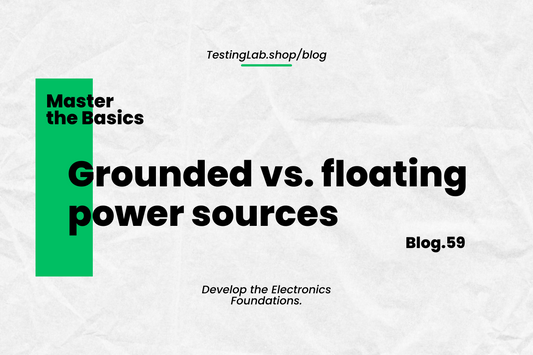Updates
View all-
How to Use Your Fluke 101 Multimeter to Test Fr...
Learn how to measure frequency using the Fluke 101 multimeter.This quick guide shows you how to safely check AC frequency (Hz) in outlets or electrical systems, with step-by-step instructions tailored...
How to Use Your Fluke 101 Multimeter to Test Fr...
Learn how to measure frequency using the Fluke 101 multimeter.This quick guide shows you how to safely check AC frequency (Hz) in outlets or electrical systems, with step-by-step instructions tailored...
-
How to Use the Fluke 101 Multimeter to Test Con...
Learn how to test continuity using the Fluke 101 multimeter.This step-by-step guide shows you how to check wires, switches, and fuses to ensure electrical connections are intact—perfect for beginners and...
How to Use the Fluke 101 Multimeter to Test Con...
Learn how to test continuity using the Fluke 101 multimeter.This step-by-step guide shows you how to check wires, switches, and fuses to ensure electrical connections are intact—perfect for beginners and...
-
What Is the Best Tool for Testing AC Current?
Not all multimeters can measure AC current—so what’s the best tool for the job?In this guide, we explain the difference between AC voltage and current, why the Fluke 101 can’t...
What Is the Best Tool for Testing AC Current?
Not all multimeters can measure AC current—so what’s the best tool for the job?In this guide, we explain the difference between AC voltage and current, why the Fluke 101 can’t...
Tutorial

Master the Basics: Grounded vs. floating power ...
Learn the key differences between grounded and floating power sources in electronics. This beginner-friendly guide explains how grounded systems use Earth as a reference point, while floating sources like batteries...
Master the Basics: Grounded vs. floating power ...
Learn the key differences between grounded and floating power sources in electronics. This beginner-friendly guide explains how grounded systems use Earth as a reference point, while floating sources like batteries...
Master the Basics: Batteries in series and para...
Learn how to safely and effectively combine batteries in series, parallel, or both to increase voltage, capacity, or current for your electronic projects. This beginner-friendly guide explains how each configuration works,...
Master the Basics: Batteries in series and para...
Learn how to safely and effectively combine batteries in series, parallel, or both to increase voltage, capacity, or current for your electronic projects. This beginner-friendly guide explains how each configuration works,...
Master the Basics: Understanding Battery Capacity
Learn how to choose the right battery for your electronics project by understanding battery capacity, current limits, and real-world performance. This beginner-friendly guide explains the difference between amp-hours and amps,...
Master the Basics: Understanding Battery Capacity
Learn how to choose the right battery for your electronics project by understanding battery capacity, current limits, and real-world performance. This beginner-friendly guide explains the difference between amp-hours and amps,...
Master the Basics: Ideal vs. real-world power s...
Learn the difference between ideal and real-world power sources in electronics. While we often assume batteries and adapters provide constant voltage, real components have limits on how much current and...
Master the Basics: Ideal vs. real-world power s...
Learn the difference between ideal and real-world power sources in electronics. While we often assume batteries and adapters provide constant voltage, real components have limits on how much current and...
Master the Basics: What are Conductors and Insu...
Electricity flows through materials differently depending on their conductivity. Conductors, like copper and gold, allow electrons to move freely, making them ideal for wiring and circuits. Insulators, like rubber and...
Master the Basics: What are Conductors and Insu...
Electricity flows through materials differently depending on their conductivity. Conductors, like copper and gold, allow electrons to move freely, making them ideal for wiring and circuits. Insulators, like rubber and...
Master the Basics: What is Electric Power?
Learn the basics of electric power in electronics—what it is, how it works, and why it matters. This beginner-friendly guide explains the relationship between voltage, current, and power using real-life...
Master the Basics: What is Electric Power?
Learn the basics of electric power in electronics—what it is, how it works, and why it matters. This beginner-friendly guide explains the relationship between voltage, current, and power using real-life...